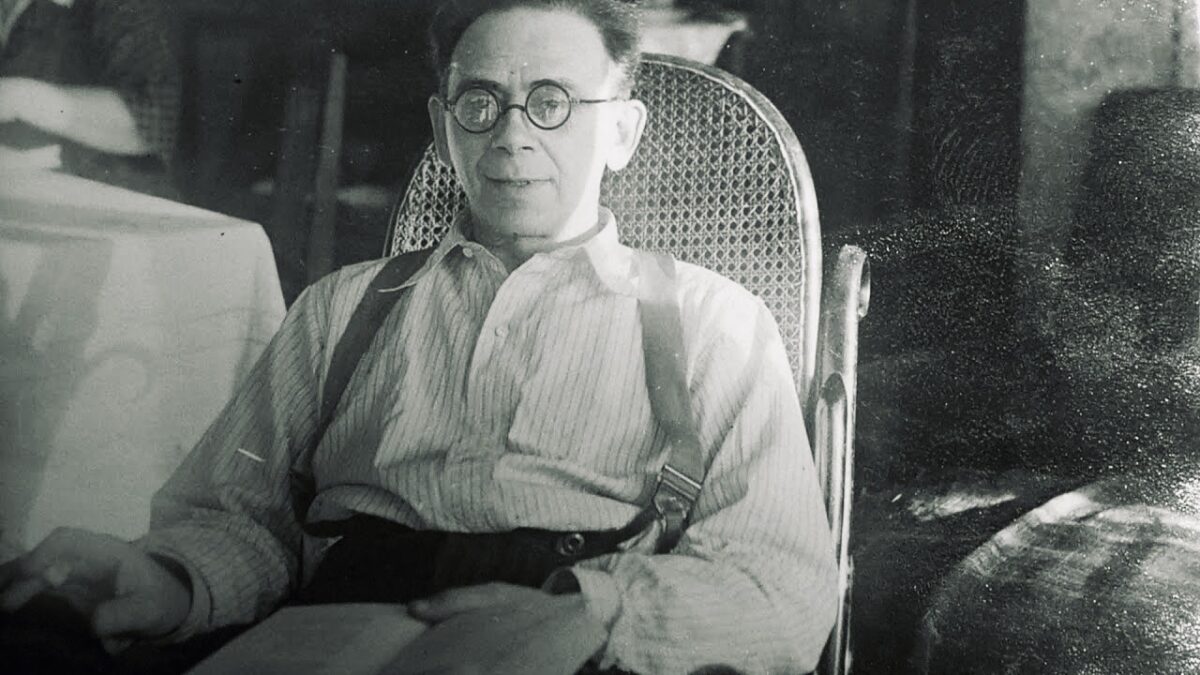Travelling around Ukraine with a phonograph and wax cylinders in hand, Moyshe Beregovsky methodically preserved the musical heritage of Ukrainian Jews before the Holocaust.
A folklorist and ethnomusicologist, he recorded hundreds, if not thousands, of Yiddish, Russian and Ukrainian folk songs, love songs, revolutionary songs, klezmer music and wordless religious melodies (nigunim).
He was also a prolific writer, publishing a succession of scholarly books, notably Jewish Musical Folklore and Jewish Instrumental Folk Music.
As Elena Yakovich observes in her elegiac film, Song Searcher: The Times and Toils of Moyshe Beregovsky, he single-handedly rescued the “living voices of his people from the flames of the Holocaust.”
Yakovich’s documentary, featuring interviews with scholars, Berezovsky’s granddaughter and Holocaust survivors, will be screened online by the Yivo Institute for Jewish Research on Thursday, March 10 at 7 p.m.
Beregovsky, a musician, teacher and archivist, was born in a remote village in Ukraine in 1892. Aspiring to be a singer, he studied in a conservatory in Petrograd. Five years later, he was appointed director of the Jewish folk music department at the Ukrainian Academy of Sciences in Kiev.
He embarked on his unique mission in 1927, spending weeks on the road. Before 1939, he was the only known person in the Soviet Union engaged in this arcane activity.
One of the songs he discovered, Papirossen (Cigarettes), achieved international fame and formed the basis of a successful play in New York City’s Yiddish theater.
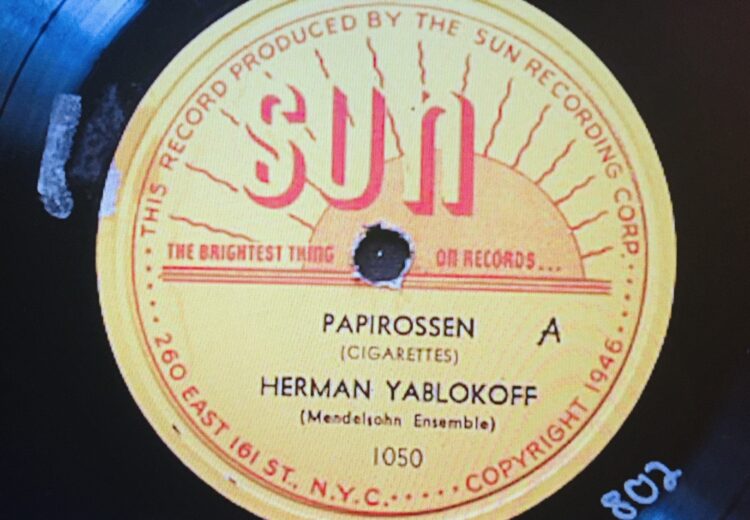
With Germany’s invasion of the Soviet Union in 1941, Ukraine’s Jewish community was virtually decimated. Members of Beregovsky’s family, including his parents, were murdered by the Nazis at Babi Yar, a ravine on the edge of Kiev. Altogether, 33,771 Jews were killed there, in one of the deadliest massacres of the Holocaust.
Beregovsky was somewhere else when this atrocity occurred. Unbeknownst to him, the Germans stole his wax cylinders with the intention of displaying them in a special museum in Frankfurt ghoulishly dedicated to the annihilated Jewish population of Europe.
He returned to liberated Kiev in the spring of 1944. He then set out for the provinces of Bukovina and Bessarabia, where Jews had been murdered by Romanian and German forces. There he collected Jewish folk music from survivors, some of whom recall their horrific experiences in this film.
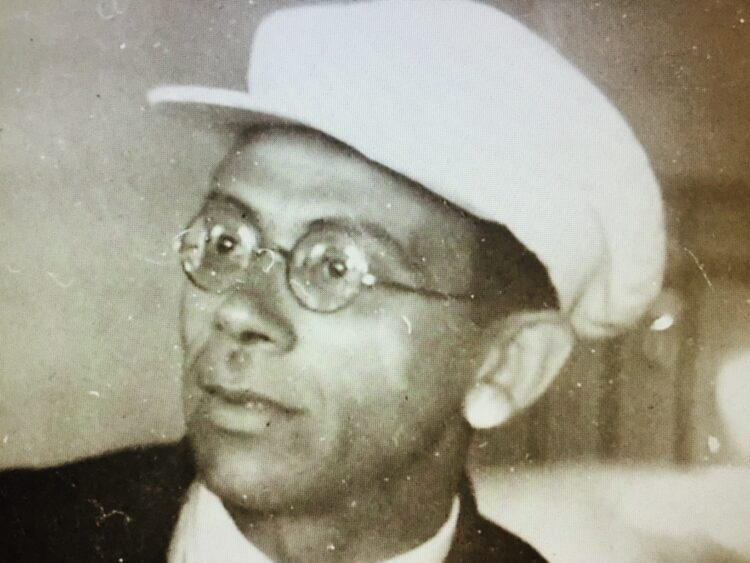
With the Soviet regime closing Jewish cultural institutions toward the close of the 1940s, Beregovsky was dismissed from his position in Kiev. Accused of being a “Jewish nationalist,” he was arrested on August 18, 1950, and 63 of his wax cylinders were seized.
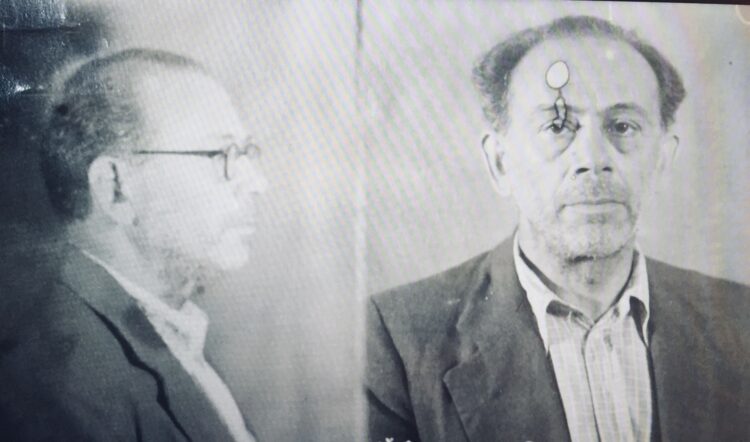
He spent six months in detention before being sentenced to 10 years in a labor camp in Siberia, where he established a prisoners’ choir. With his health failing, Beregovsky was released in 1955, and the case against him was closed. He died of lung cancer on August 12, 1961.
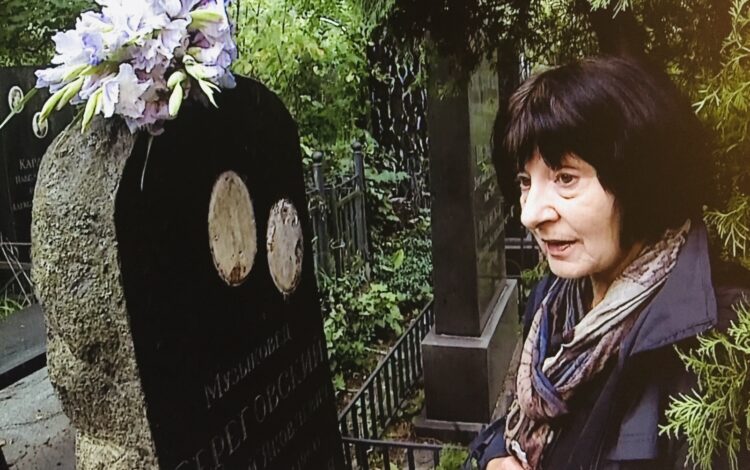
For years, his archives and collection of wax cylinders were thought to be lost, but they were fortuitously found in the basement of a library. Today, they are stored in the National Library of Ukraine in Kiev.
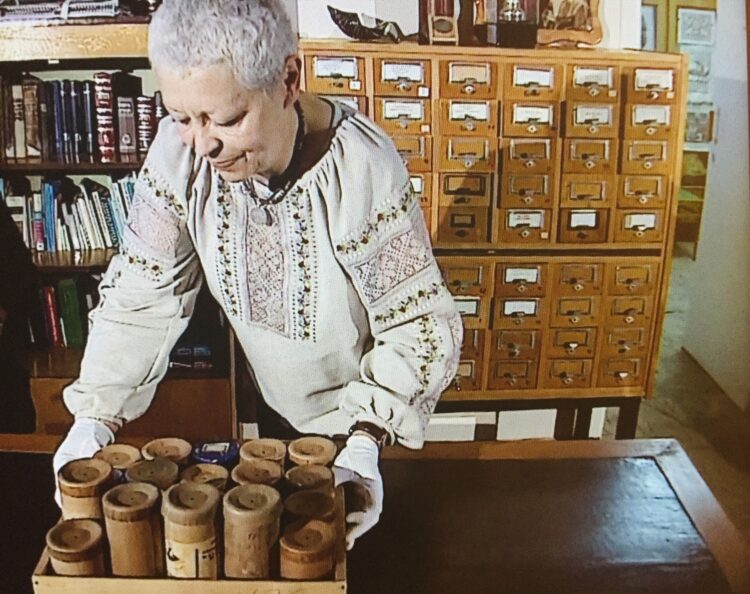
In 2019, an album of Beregovsky’s music, Yiddish Glory, was nominated for a Grammy.
By dedicating himself to the preservation of Jewish folk music, Beregovsky exposed himself to loss of livelihood and imprisonment, but his sacrifices were not in vain, as Song Searcher makes abundantly clear.
